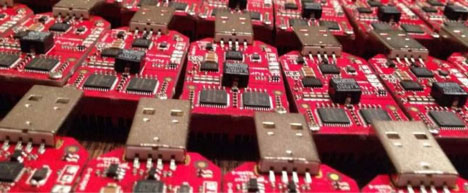[ad_1] Of all the parts of the Ethereum protocol, aside from the mining function the fee structure is perhaps the least set in stone. The current values, with one crypto operation taking 20 base fees, a new transaction taking 100 base fees, etc, are little more than semi-educated guesses, and […]
bourse de casablanca
[ad_1] This post will provide the groundwork for a major rework of the Ethereum scripting language, which will substantially modify the way ES works although still keeping many of the core components working in the exact same way. The rework is necessary as a result of multiple concerns which have […]
[ad_1] My previous post introducing Ethereum Script 2.0 was met with a number of responses, some highly supportive, others suggesting that we switch to their own preferred stack-based / assembly-based / functional paradigm, and offering various specific criticisms that we are looking hard at. Perhaps the strongest criticism this time […]
[ad_1] There have been a number of very interesting developments in cryptography in the past few years. Satoshi’s blockchain notwithstanding, perhaps the first major breakthrough after blinding and zero-knowledge proofs is fully homomorphic encryption, a technology which allows you to upload your data onto a server in an encrypted form […]
[ad_1] Bitcoin developer Gregory Maxwell writes the following on Reddit: There is a design flaw in the Bitcoin protocol where its possible for a third party to take a valid transaction of yours and mutate it in a way which leaves it valid and functionally identical but with a different […]
[ad_1] The Ethereum Project has had the incredible privilege to launch its PoC testnet and engage the crypto-currency community over the past two months. During our experiences, we’ve encountered a lot of passionate support and wonderful questions that have helped us refine our thoughts and goals including the process we […]
[ad_1] Scalability is now at the forefront of the technical discussion in the cryptocurrency scene. The Bitcoin blockchain is currently over 12 GB in size, requiring a period of several days for a new bitcoind node to fully synchronize, the UTXO set that must be stored in RAM is approaching […]
[ad_1] Many of the concepts that we promote over in Ethereum land may seem incredibly futuristic, and perhaps even frightening, at times. We talk about so-called “smart contracts” that execute themselves without any need, or any opportunity, for human intervention or involvement, people forming Skynet-like “decentralized autonomous organizations” that live […]
[ad_1] In the last installment of this series, we talked about what “smart contracts” (or, perhaps more accurately, “self-enforcing contracts”) are, and discussed in detail the two main mechanisms through which these contracts can have “force”: smart property and “factum” currencies. We also discussed the limits of smart contracts, and […]
[ad_1] There are a lot of interesting changes to the Ethereum protocol that are in the works, which will hopefully improve the power of the system, add further features such as light-client friendliness and a higher degree of extensibility, and make Ethereum contracts easier to code. Theoretically, none of these […]






 Bitcoin
Bitcoin  Tether
Tether  XRP
XRP  USDC
USDC  Dogecoin
Dogecoin  Lido Staked Ether
Lido Staked Ether  LEO Token
LEO Token